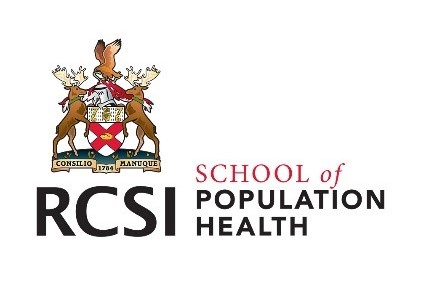 Funded PhD: Modelling the future of integrated alternative care pathways in community based unscheduled care
Funded PhD: Modelling the future of integrated alternative care pathways in community based unscheduled care
This is a full-time four-year PhD opportunity based at RCSI and funded by the Health Research Board via an Emerging Clinician Scientist Award to Associate Professor Tomás Barry.
What this opportunity offers and why should I apply?
- Structured doctoral training via SPHeRE Programme – the national research training programme for population health, policy and health services research
- Training in advanced quantitative methods including multilevel modelling, agent-based simulation, and health services evaluation
- Hands on access to national health service datasets including community-based unscheduled care data from primary care and emergency medical services
- Policy facing research with opportunities to engage with service leads and contribute to ongoing health service development
- Support for academic publishing and presentation at major international conferences
- The potential for a short-term (2-3 month) secondment to one of our partner academic/policy institutions in the UK, Europe, Canada, Singapore or Australia to gain comparative insights and methods expertise
- Career development support including grant writing, stakeholder engagement, and preparation for both postdoctoral and applied roles
- €25,000 annual stipend
- €5,500 annual student fee payment
- Project laptop computer
Background
Ireland’s population is growing and aging. Significant increases in health-service utilisation are occurring. In parallel, major issues with workforce recruitment and retention are emerging. Similar trends are apparent internationally. Health-systems are responding by innovating in service delivery and attempting to ‘shift-left’ i.e., treating more patients in primary care and in the community. Ireland’s ‘Slaintecare’ high level health-policy attempts to reorientate the health-system towards efficient, integrated primary and community care.
Unscheduled care is healthcare which cannot reasonably be foreseen in advance of contact and thus must be available 24/7. Ireland’s population of five million people generates approximately three million episodes of unscheduled care each year. This project will focus on unscheduled care that is delivered in the community by the Ambulance Service and by General Practice.
Aim
To generate a data-driven blueprint for the development of integrated community based unscheduled care pathways in Ireland.
Objectives
Conduct a systematic review of alternative care interventions in community based unscheduled care.
Establish the current epidemiology of community based unscheduled care presentations in Ireland.
Harness available population level datasets (socio-demographic, health-service structure, and community based unscheduled care utilisation), and employ multi-level statistical mixed-modelling approaches to model future demand and simulate the impact of novel interventions.
Conduct a prospective observational study to establish the key processes and outcomes of novel alternative care pathways currently being implemented by the National Ambulance Service.
The prospective candidate is expected to enrol on the SPHeRE Programme
Candidate Specification
Minimum requirements
- Upper second class (2.1) honours degree (NFQ Level 8) or equivalent in a quantitatively focused or health-related discipline – e.g. public health, statistics, mathematics/biostatistics, data analytics, epidemiology, health-services research, applied psychology
- Eligible to register as a full-time research student at RCSI and to take up the post on 1 September 2025
- Applicants whose first language is not English must present IELTS ≥ 6.5 overall with no band < 6.0, or an equivalent TOEFL/PTE score
Desirable candidate specifications
- A background in data science is desirable. Candidates from quantitative or health-related disciplines, such as public health, mathematics, statistics, biostatistics, epidemiology, health services research, health policy and psychology who demonstrate analytical skills are encouraged to apply.
- Some experience of a having a significant role in activities leading to peer reviewed scientific publication
Supervisory and support team
- Assoc. Prof Tomás Barry, PI/Primary Supervisor, School of Population Health, RCSI.
- Prof Kathleen Bennett, Head of the Data Science Centre, School of Population Health, RCSI.
- Prof Eilish McAuliffe, School of Nursing, Midwifery & Health Systems, UCD
- Ass. Prof Garrett Greene, School of Mathematics and Statistics, UCD.
- Prof Edward Gregg, School of Population Health, RCSI.
- Prof Patrick Redmond, Department of General Practice, RCSI
- Prof Sara Burke, Centre for Health Policy and Management, Trinity College Dublin
- Dr Siobhan Masterson, General Manager, Clinical Strategy & Evaluation, National Ambulance Service
- Mr Brian McKeon, Head of Service – Technology & Data Analytics, National Ambulance Service
- Ass. Prof Deirdre O’ Donnell, Centre for Interdisciplinary Research, Education and Innovation in Health Systems, UCD
How to Apply:
Please submit a CV and cover letter to Assoc. Prof Tomás Barry via PopulationHealth@rcsi.ie .
Deadline for applications: Wednesday August 6th 2025 12 noon.

